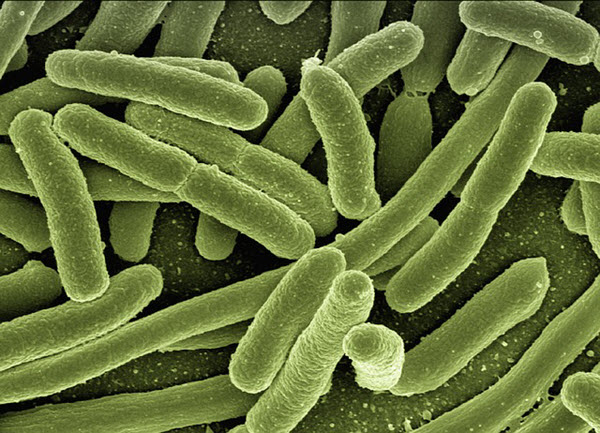Believe it or not, we’ve got millions and millions of different types of bacteria in our intestines. These microscopic organisms aren’t bad, though. In fact, they are necessary.
These gut bacteria are very important for our overall well-being. They help with digestion, as well as satiety after eating. Because of that, improving gut health is also important for maintaining a healthy weight.
Gut Bacteria

One study found that in a man that weighs almost 155 pounds, there are approximately 40 trillion bacterial cells in the body compared with approximately 30 trillion human cells. It can be crazy to think that there are more bacteria in the human body than actual human cells.
However, with all the work they do, it’s no surprise!
Your intestinal tract is made up of a portion of intestine called the cecum. That’s where a large part of this group of gut bacteria live. They help keep your body healthy by assisting with the production of vitamins and warding off infection. These microorganisms also help to break down food and absorb their nutrients.
Gut Health And Your Weight
This is where weight correlation comes into play.
As we eat our food, the digestive process that happens is much more intricate than we could imagine. Likewise, these bacteria play a large role in the overall progression of food through your system.
Our entire digestive system breaks down food into small pieces. The tiniest ones get absorbed by the body into the bloodstream.
The bacteria within the gut break down and digest food. When they aren’t as efficient in doing their job, more calories are stored and you gain more weight overtime. In essence, this means that the more of the storing bacteria you have in your gut and the unhealthier the bacteria are, the more weight you gain over time.
If we step back and think about this, it would seem that it’d be necessary to try improving gut health. But how can you do that?
How To Develop A Healthy Gut
Even if we start out with a healthy gut, there are lifestyle factors that contribute to the decline of our digestive tract. Some examples are medicine, chronic stress, constant infections within the body, and a diet that is lacking in fiber. Consuming sugary and processed foods can also negatively affect your gut health.
Many processed foods that are available today are lacking in fiber, which is essential for gut health. Fiber is key in helping us feel full and satisfied after we eat.
When our gut bacteria break down fibers that we eat, chemicals are produced. One of them is called propionate and it has an impact on the hormones that control hunger. This leads to a reduction in food intake, as well as a decrease in weight.
With that being said, it’s safe to say that having good bacteria in your gut can help regulate your satiety, as well as your weight.
Food items that can harm your gut bacteria include those that contain excessive amounts of sugar and artificial sweeteners. These items spur the growth of harmful bacteria and reduce the number of good bacteria in the gut.
Foods that contain a lot of unhealthy fats are also not good for your gut health and corresponding weight management.
See Also: 7 Healthy Foods That Will Fill You Up and Prevent Overeating
Bottom Line
So, what can you do to improve gut health?
Adding a probiotic to your diet is a wonderful option. They can help improve the health of your gut bacteria. Managing stress appropriately is helpful as well. Our gut plays a large role in how our body handles day to day stressors.
Lastly, supplementing your diet with fiber is a good way to promote gut health and weight loss.
Our gut is an amazing thing. It contains trillions of different types of bacteria that can impact our health – both from the inside and outside.
From the breakdown of food to digestion and storage, good gut bacteria is important for overall health and healthy weight management.